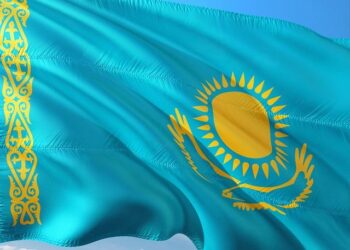Belarus Frees Three Prisoners, Including an American, Amid Rising Diplomatic Pressure
In a significant and unexpected move, Belarusian authorities have released three individuals detained under contentious circumstances, among them an American citizen. This development has drawn immediate attention from the White House and global diplomatic circles. The release occurs against a backdrop of heightened international scrutiny following Belarus’s intensified crackdown on political dissent and civil freedoms since the disputed 2020 presidential election.
The U.S. government confirmed the release through official channels, framing it as a cautiously optimistic step toward easing tensions. This gesture may signal potential openings for dialogue after years marked by accusations of human rights violations leveled at Minsk by Western governments. The freed detainees represent both local activists and foreign nationals caught in the crossfire of Belarus’s internal political strife.
This event has sparked renewed discussions about how such actions might influence regional stability and reshape diplomatic relations between Belarus and its Western counterparts.
Diplomatic Ramifications Following Belarus’s Decision to Free Detainees
The liberation of these prisoners has triggered fresh conversations among international policymakers regarding future engagement with Belarus. Since 2020, relations between Minsk and many Western countries have been fraught due to allegations of electoral fraud, suppression of protests, and systemic human rights abuses.
Key themes emerging from recent dialogues include:
- Human Rights Advocacy: Persistent concerns remain over the treatment of political prisoners in Belarusian detention centers.
- Prospects for Regional Cooperation: The release could open pathways for improved ties between Belarus and European nations seeking stability on their eastern borders.
- Sanctions Review: There is speculation that this act might prompt reconsideration or recalibration of sanctions currently imposed on Minsk by the EU and U.S., though any changes would likely depend on sustained reforms.
The ultimate impact remains uncertain; however, this development may serve as a catalyst for more constructive diplomatic exchanges moving forward.
How Releasing an American Prisoner Could Influence U.S.-Belarus Relations
The decision to free an American detainee alongside two others marks a pivotal moment in the strained relationship between Washington and Minsk. Occurring amid ongoing geopolitical friction‚ÄĒexemplified recently by NATO’s bolstered presence near Eastern Europe‚ÄĒthe move introduces new variables into bilateral diplomacy efforts focused on human rights issues within Belarus.
The United States has expressed guarded optimism about this gesture but underscores that meaningful progress requires continued commitment from Belarus toward democratic principles. Analysts note several factors that will shape future interactions:
- Diplomatic Strategy Adjustments: Washington may explore enhanced communication channels with Minsk aimed at resolving outstanding disputes peacefully while maintaining pressure where necessary.
- Sustained Human Rights Emphasis: Protecting civil liberties remains central to U.S. policy objectives concerning Eastern Europe’s authoritarian regimes.
- Global Responses Matter: Reactions from European Union members‚ÄĒwho maintain significant economic leverage over Belarus‚ÄĒwill heavily influence whether this thaw leads to broader cooperation or stalls amid skepticism about genuine reform efforts.
This episode could pave the way for addressing critical issues such as prisoner treatment standards or electoral transparency if both sides commit to dialogue backed by international oversight mechanisms like those promoted through OSCE initiatives.[1]
Strategic Approaches for Enhancing U.S.-Belarus Relations Post-Release
The recent prisoner releases offer Washington an opportunity to recalibrate its approach toward engaging with Minsk constructively while upholding core values related to democracy and human rights protection. Recommended strategies include:
- Bilateral Diplomatic Expansion: Increasing embassy-level interactions focused explicitly on governance reforms can foster trust-building measures essential for long-term progress.
- Tied Economic Incentives: Introducing conditional aid packages or trade benefits contingent upon verifiable improvements in civil liberties could motivate policy shifts within authoritarian structures resistant to change otherwise.[2]
- Civil Society Empowerment Support: Allocating resources towards independent media outlets, NGOs advocating democratic participation, legal aid groups defending political prisoners‚ÄĒall vital components strengthening grassroots resilience against repression.[3]
- A Unified International Front: Collaborating closely with European partners ensures consistent messaging towards Minsk while maximizing leverage through coordinated sanctions enforcement or relief tied directly to reform benchmarks.< / li >
< strong >Initiative< / strong > < strong >Objective< / strong > < / tr >
< /thead >Human Rights Oversight Mechanism< /td > Establish regular monitoring bodies reporting transparently on prison conditions & freedom indices within Belarus.< /td >
< /tr >Leadership Exchange Programs< /td > Promote knowledge-sharing opportunities enabling activists & officials from both countries exchange best practices fostering mutual understanding.< /td > < /tr >
Transparency Promotion Campaigns< /td > Encourage adoption of open governance policies including public access laws & anti-corruption frameworks enhancing accountability.< / td >  
 
 
 
Final Reflections: What Does This Mean For Human Rights And Diplomacy?
The discharge of three detainees‚ÄĒincluding one holding American citizenship‚ÄĒis undeniably a noteworthy milestone amidst ongoing challenges confronting civil liberties inside Belarus.
While welcomed internationally as a hopeful sign,(see above), it also underscores persistent difficulties faced by opposition figures still imprisoned under harsh conditions.
As global actors continue scrutinizing developments closely,(see above), questions linger whether this represents genuine policy transformation or merely tactical concession designed to ease external pressures temporarily.
Looking ahead,
the focus must remain steadfastly fixed not only upon securing freedom for remaining detainees but also supporting systemic reforms ensuring sustainable respect for fundamental freedoms throughout society.
The unfolding situation demands nuanced diplomacy balancing firmness with openness‚ÄĒa challenge requiring patience yet offering hope that incremental progress remains achievable despite entrenched obstacles.
—
[1] Organization for Security and Co-operation in Europe (OSCE) reports highlight ongoing monitoring efforts regarding elections in Eastern Europe.
[2] Recent studies indicate conditional economic incentives can positively influence authoritarian regimes’ behavior when paired with robust verification systems.
[3] Independent research confirms support directed at grassroots organizations significantly strengthens democratic resilience under repressive governments.















